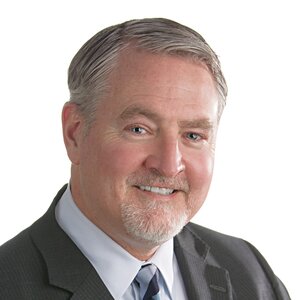
Paul Fogle,
Managing Director,
Quality Leasing
Brokers are key contributors to the equipment leasing community and even if they aren’t utilized by every company, they provide a compelling benefit to those that do.
According to Paul Fogle, managing director of Quality Leasing, his company saw the value in working with brokers early on, viewing brokers as an extension of its own sales team which gave it the ability to expand its footprint and reach more vendors, dealerships and customers while maintaining a smaller internal sales staff. Quality Leasing’s internal sales staff also originates individually as well, but creating an expanded sales team has been the philosophy behind its broker relationships.
Financial Pacific Leasing began working with brokers in the late 1980s when it was a locally-based leasing company sourcing to vendors in the greater Seattle and Tacoma, WA, areas. As a strategy to grow outside of the greater Seattle area, Financial Pacific started partnering with brokers in other cities that had a similar approach to vendors in

their own local areas, according to Terey Jennings, president of Financial Pacific Leasing. Branching out from Washington, Financial Pacific started adding states and brokers over the next 10 years, learning how to originate within its third-party originator channel and what was important to customers.
Meanwhile, when North Mill Equipment Finance completed its ownership recapitalization in 2018, it wanted to expand its client base and market nationally in a relatively small amount of time to accelerate its growth. David Lee, CEO of the company, says his colleagues found they could access the entire universe of potential deals by developing relationships with as many brokers who already had channels to originate business in place as possible. North Mill quickly became a broker-only committed equipment finance company and hasn’t looked back since, according to Lee.
When it comes to working with the TPO channel, some of the benefits outstrip those found in direct and vendor-based models.

“The TPO channel adds a lot of value to what kind of transactions we look at; it makes us more efficient. Our third-party originators screen transactions, get information, they know what we’re looking for in a transaction,” Fogle says, noting that the TPO channel lets Quality Leasing close on larger volumes and approve deals quicker, allowing everyone involved in a transaction find success, including the TPO and the customer.
“I don’t think we necessarily look at it as one channel being more beneficial over another because we have a presence in a direct channel and we have a presence in a vendor channel, as well as our TPO channel,” Jennings says. “For us, it was just a way to build a successful strategy for us and expand.”
Establishing Trust
In some circles, when you bring up the topic of TPOs, particularly with larger banks, there can be some hesitancy, particularly as some cases in the past illuminated incidents of fraud in broker-originated deals. So how can leasing companies establish trust with a broker?
Quality Leasing employs an extensive broker application followed by a detailed review, including calling each reference and inquiring about various aspects of an applicant’s performance, history and reliability. In addition, background checks, financial history and resume reviews are all performed in-house. Quality Leasing typically gravitates toward more experienced players but considers all applications.
“A lot of what we rely on are the references,” Fogle says. “And generally, I think people in this industry are very honest with each other. And I say sometimes we want to self-police. And I’ve had occasions where we’ve gotten an application whereby they got a very bad reference or a bad reference, and we did not approve that application, but there’s a lot of talented people out there and there’s a lot of brokers that find every nook and cranny of opportunities for our business and lending opportunities.”
Experience has always been central to Financial Pacific’s approach to broker applications, spanning from when it was an independent to when it became a subsidiary of Umpqua Bank. Some of its relationships are older than 30 years and its average TPO relationship lifespan is around 15 years. Jennings says trust is usually established though an ongoing vetting process as the relationship develops.
“In terms of our vetting process, we try to understand how they originate their business and what’s their history, where they got their experience,” Jennings says. “We get some ratings from some other of their funding relationships, and we know who all the funders are out there. If we see that they’re working with some established companies that we know and trust, that’s a good thing. But again, we fall back on our experience of what a good relationship looks like, and that has certainly benefited us in the past.”
North Mill Equipment Finance conducts a broker interview process, including conducting a background check, making sure not to allow brokers its team hasn’t known for a very long time to document transactions. For most credit applications submitted by referral sources, North Mill underwrites all submissions in-house with a large staff of credit professionals. Background checks are a given as is verifying all information, but North Mill also looks at PayNet as well as the asset and the comparable wholesale value of an asset. Information on these topics is automated and then passes through two levels of credit analysis to further validate the information. Finally, when the documents are requested, North Mill deals directly with the borrower in closing the transaction, including a telephone interview.
“It doesn’t mitigate or eliminate a 100% of fraud,” Lee says. “Everyone’s got the oddball case, but our process protects us from any large-scale fraud. So far, we have never had a broker commit or even attempt to commit fraud with us. The fraud is usually done at the borrower and/or vendor level in the few cases where we’ve gotten burned. So by and large, the brokers have been honorable and diligent.”
Earning Loyalty
On the flip side, brokers are independent, so they are free to work with multiple lenders, meaning leasing companies must earn the loyalty of brokers while establishing trust.
Quality Leasing has a backup team located on-site at its headquarters in Carmel, IN, but the majority of salespeople out in the field tend to have very solid relationships with their brokers.
“I think one differentiator for us is that a broker works with one sales person internally,” Fogle says. “If they have a question on a transaction, if they have a question on an existing client, there’s one phone number they need and that sales person can handle the questions or problems from soup to nuts.
“Our salespeople have really, really great relationships with their brokers. I mean, they’ve gone to kids’ weddings, they vacation together. They socialize when the opportunity arises, they talk about family, they talk about all sorts of things. I think that single point of contact helps a lot,” Fogle says.
“I think it’s all about creating value,” Jennings says. “If your value proposition isn’t there for your partners, I think you’ll struggle. And value can come in different ways. Certainly, having a product that meets the needs of a broker customer in terms of their credit window and pricing is important, but I think it goes beyond just that product. It’s stability of being in the channel for 30 years. It’s the processes that cater to our customer’s needs. The technology to conduct business. And just an ease of doing business.
“Last, but certainly not least, it’s the relationship value of working together for many years. We love working with the people that we partner with. And I believe, in turn, they enjoy working with us. It’s that relationship value that you build up over time that I think creates that loyalty,” Jennings says.
“I’m a big believer in transparency,” Lee says. “Transparency creates trust. So we’re completely transparent with our brokers in terms of our underwriting process. We don’t do automated credit decisioning so brokers can appeal.”
Lee also says a maximum transparency approach leads to great success because it fosters a sense of control in clients. Lee believes interacting directly with C-suite players within North Mill also provides trust because if a conversation with the CEO or chief credit officer isn’t enough to secure a relationship, what else is?
Customer Relations
With more than a few parties involved in broker-led deals, it can become difficult to determine to whom the customer “belongs,” both in the initial deal and in the future.
“The customers that are brought to us by third-party originators or relationships that are brought to us — it could be a deal or it could be a specific customer or a vendor, other type of vendor, as far as business development goes — that customer belongs to the broker. There’s no question, no doubt about that,” Fogle says. “I would say the customer is both of our customers. I mean, we do verification calls. It’s our money at risk. And if there’s an issue, for instance, maybe payments are coming late or we can’t get ahold of them for some reason, we often enlist the help of the broker. So it’s our risk. It’s our money. They contact us and we contact them. But if a term came up or they want to look for another piece of equipment, we always refer them back to the broker, always. And there’s no exception to that.”
Jennings believes brokers need to know and trust their funding sources above all else. Using Financial Pacific’s 30 years of experience in this channel, Jennings is convinced brokers know their best interests are Financial Pacific’s best interests in terms of ownership of a customer.
“From our standpoint, the TPO, the broker, owns that relationship with that customer,” Jennings says. “And if we get a call from a customer wanting to finance some additional equipment, we’ll send that back to the broker that originated the transaction with us. We even have pre-approved some of our existing good paying customers for additional business. And then we send those pre-approvals back to the broker and let them go out and source that additional business.”
“Our attitude is the brokers are our customers. The borrowers are not our customers and the vendors are not our customers,” Lee says. “A lot of our competitors are also our brokers. So, believe it or not, a good source of volume for us are other funders who have vendor relationships because they’ll have exposure limitations with some of their customers, so we don’t want their turndowns. We want their exposure limitations. If that vendor customer wants us to work directly with them, we just won’t let them.”
North Mill takes care of its broker relationships because its brokers provide great deals and long-lasting relationships. The company has loyalty programs for brokers, adding increased incentive to refer new deals in exchange for rewards that translate to a bigger bottom line at the end of the year.
Finding the Best
The defining quality of a top broker for Fogle is the degree to which they are thorough. Top brokers know Quality Leasing’s program, they know what to ask for, they know the details and they’ve asked all of the questions. The broker knows if they’re a good fit when they are able to effectively manage customer expectations in a realistic and accurate way. Quality Leasing’s top brokers are all very transparent, both with the customer and with Quality Leasing, according to Fogle, who says transparency translates to honesty and integrity, qualities that are not easily forgotten.
Lee says North Mill looks specifically for experience first, with at least one year in the industry a requirement. North Mill also prefers prospective partners who have put in some time at a bigger establishment and then considers funding references.
Jennings relies on instinct to determine what makes a good broker in the long-run. The culmination of successful deals (from small and sporadic ones to large and constant ones) and interactions over time makes a good broker for Jennings. From there, measurable data is the next most useful tool in finding and retaining talented brokers.
“It’s really a good working relationship with them,” Jennings says. “And that can either be on a small level, with just doing one or two deals a month, or some of our largest relationships, where we’re doing a lot of business. It’s really the ease of doing business with each other, and developing that relationship is key to what makes a successful partnership. Beyond that, there are certainly measurables. The efficiencies of doing business that we can measure through a book-to-application ratio and then portfolio performance. And we measure those things on every relationship. And that’s just part of the ongoing monitoring and relationship development.”
Ian Koplin is editor of Monitor. Rita E. Garwood, editor in chief, interviewed Paul Fogle, Terey Jennings and David Lee for this article.
No categories available
No tags available